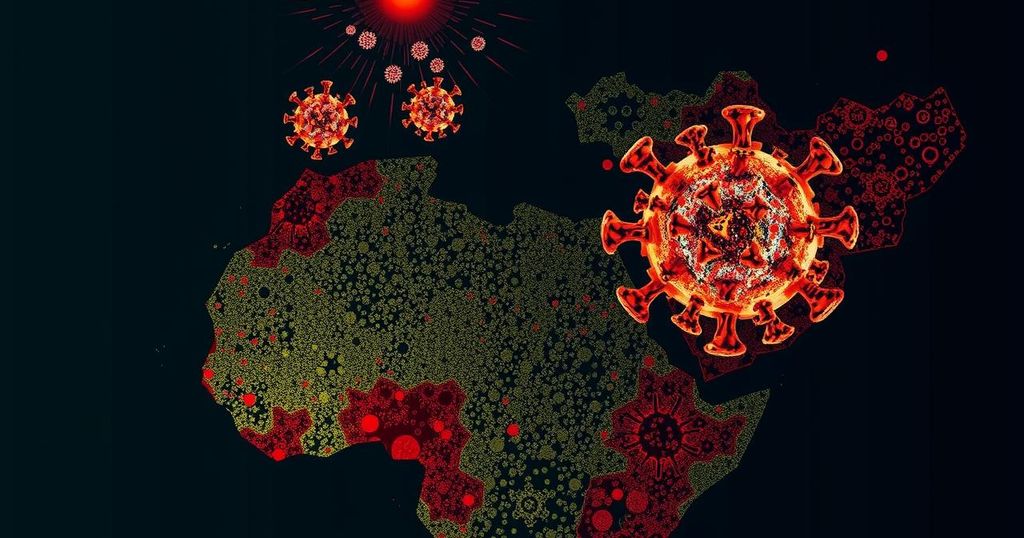Mpox Cases in Africa Exceed 59,200 as 20 Countries Are Affected
As of November 30, 2023, Africa has reported over 59,200 mpox cases across 20 countries. The Africa CDC noted significant increases in infections and deaths, particularly in Burundi, the Democratic Republic of the Congo, and Uganda. The situation prompted health emergency declarations from the Africa CDC and WHO, highlighting the ongoing public health risks associated with mpox in the region.
The Africa Centers for Disease Control and Prevention (Africa CDC) has reported that the continent’s mpox cases have exceeded 59,200 this year, affecting 20 countries. During a recent online media briefing, Ngashi Ngongo, the chief of staff at Africa CDC, indicated that of the total cases, approximately 12,938 have been confirmed, resulting in over 1,164 fatalities, leading to a case fatality rate of approximately 2 percent. Last week alone, Africa documented 2,680 new mpox cases, including 492 confirmed diagnoses and 22 additional deaths.
Countries such as Burundi, the Democratic Republic of the Congo, and Uganda represent the bulk of the newly confirmed cases. Furthermore, Angola has emerged as the latest nation to report its first confirmed mpox case as of November 16, bringing the total number of affected countries to 20. The Africa CDC noted that confirmed cases in Africa have risen by over 600 percent this year compared to 2022. Ngongo highlighted that the Central Africa region remains predominantly affected, accounting for 93.2 percent of confirmed cases and 99.5 percent of reported deaths.
In response to the outbreak, the Africa CDC declared a public health emergency of continental security in August, closely followed by the World Health Organization’s declaration of mpox as a public health emergency of international concern. This marked the second time within two years that such a high level of global alert was activated. The United States and Canada also recorded their first new mpox cases linked to travel history to Africa on November 16 and 22, respectively.
Mpox, commonly referred to as monkeypox, was first identified in laboratory monkeys in 1958. It is recognized as a rare viral disease that spreads primarily through body fluids, respiratory droplets, and contaminated materials, typically manifesting symptoms such as fever, rash, and swollen lymph nodes.
Mpox, formerly known as monkeypox, is a viral disease that has attracted significant attention due to its increasing prevalence in Africa and beyond. The disease is endemic to certain regions, particularly Central and West Africa, where it primarily spreads through animal-to-human transmission and human interactions. Since its initial identification in 1958, mpox has remained relatively rare but is notable for being particularly serious in certain populations, resulting in a range of health complications, including mortality in extreme cases. The recent spikes in cases have prompted health organizations to monitor the disease closely, leading to emergency declarations aimed at curbing its spread and ensuring public health safety. The data released by Africa CDC highlights concerns with rising infections, particularly since the COVID-19 pandemic has strained global health resources and response systems. The designation of mpox as a public health emergency underlines the escalating need for coordinated international efforts to manage the outbreak and provide necessary support to affected regions.
In summary, the emergence of mpox cases across Africa signifies a critical public health challenge, with reported cases exceeding 59,200 and an alarming rise in fatalities. The situation has been exacerbated by increased transmission in specific countries, particularly in Central Africa, necessitating a robust response from health authorities. The declarations by the Africa CDC and the World Health Organization underscore the urgency needed to combat this outbreak and safeguard public health in both African nations and internationally.
Original Source: english.news.cn




Post Comment